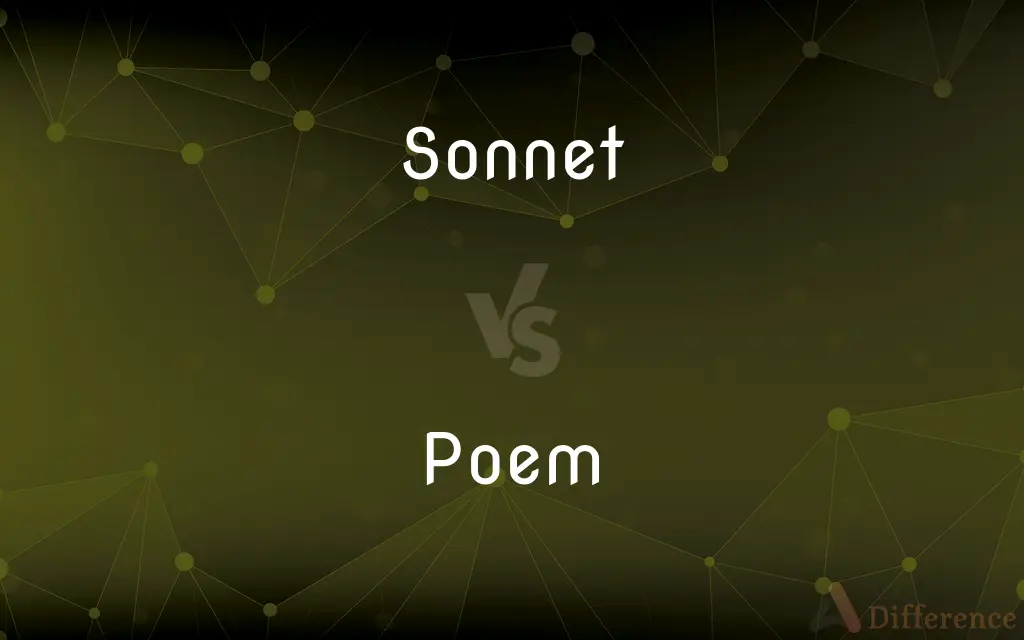Sonnet vs. Poem — What's the Difference?

Difference Between Sonnet and Poem
ADVERTISEMENT
Compare with Definitions
Sonnet
A sonnet is a poetic form which originated in the Italian poetry composed at the Court of the Holy Roman Emperor Frederick II in Palermo, Sicily. The 13th-century poet and notary Giacomo da Lentini is credited with the sonnet's invention for expressing courtly love.
Poem
A verbal composition designed to convey experiences, ideas, or emotions in a vivid and imaginative way, characterized by the use of language chosen for its sound and suggestive power and by the use of literary techniques such as meter, metaphor, and rhyme.
Sonnet
A 14-line verse form often in iambic pentameter, having one of several conventional rhyme schemes and usually featuring a shift in mood or tone after the eighth or twelfth line.
Poem
A composition in verse rather than in prose
Wrote both prose and poems.
Sonnet
A poem in this form.
ADVERTISEMENT
Poem
A literary composition written with an intensity or beauty of language more characteristic of poetry than of prose.
Sonnet
A fixed verse form of Italian origin consisting of fourteen lines that are typically five-foot iambics and rhyme according to one of a few prescribed schemes.
Poem
A literary piece written in verse.
Sonnet
(intransitive) To compose sonnets.
Poem
A piece of writing in the tradition of poetry, an instance of poetry.
Sonnet
(transitive) To celebrate in sonnets; to write a sonnet about.
Poem
A piece of poetic writing, that is with an intensity or depth of expression or inspiration greater than is usual in prose.
Sonnet
A short poem, - usually amatory.
He had a wonderful desire to chant a sonnet or hymn unto Apollo Pythius.
Poem
A metrical composition; a composition in verse written in certain measures, whether in blank verse or in rhyme, and characterized by imagination and poetic diction; - contradistinguished from prose; as, the poems of Homer or of Milton.
Sonnet
A poem of fourteen lines, - two stanzas, called the octave, being of four verses each, and two stanzas, called the sestet, of three verses each, the rhymes being adjusted by a particular rule.
Poem
A composition, not in verse, of which the language is highly imaginative or impassioned; as, a prose poem; the poems of Ossian.
Sonnet
To compose sonnets.
Poem
A composition written in metrical feet forming rhythmical lines
Sonnet
A verse form consisting of 14 lines with a fixed rhyme scheme
Sonnet
Praise in a sonnet
Sonnet
Compose a sonnet
Share Your Discovery

Previous Comparison
Agar vs. Carrageenan
Next Comparison
Hawaii vs. Caribbean















































